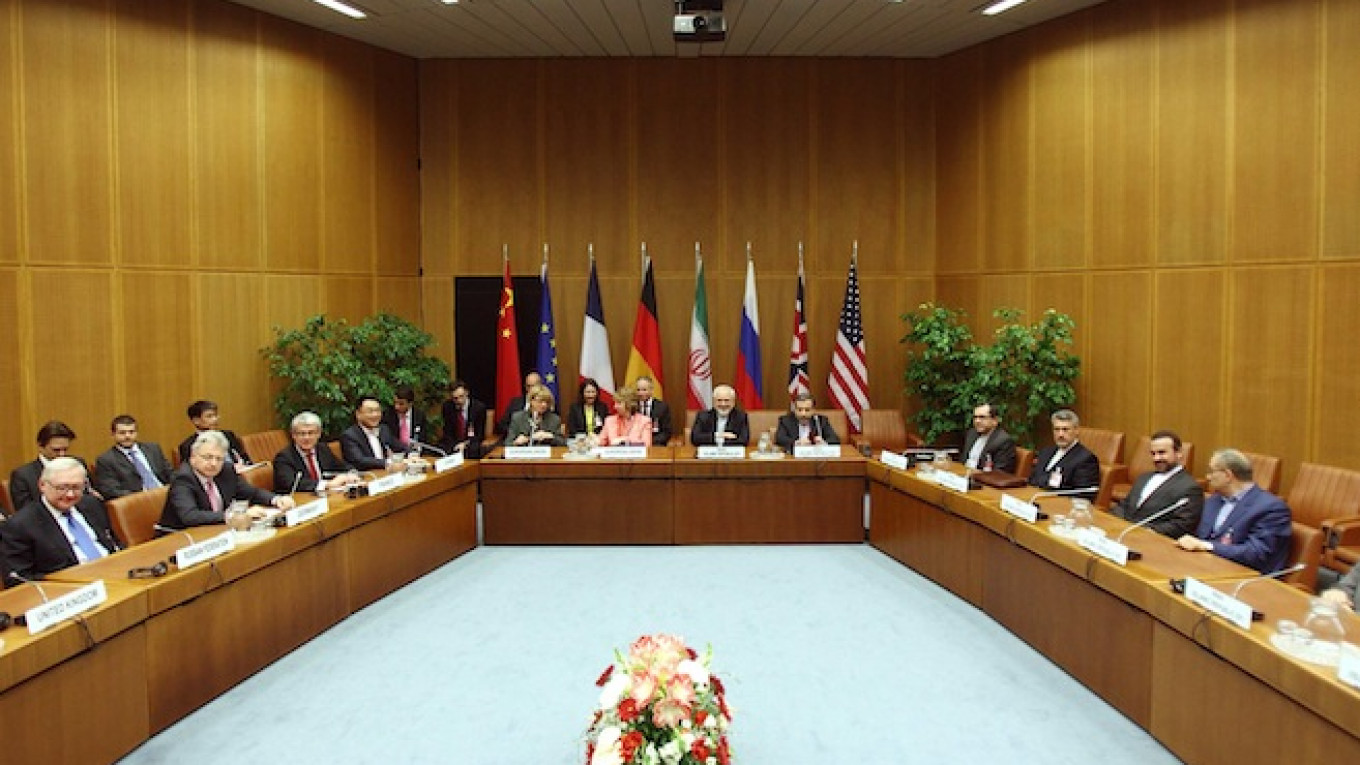Iran and six world powers could agree parts of a text of an agreement on Tehran's nuclear program when they meet for a new round of negotiations in Vienna next week, Russia's chief negotiator said.
Iran, the U.S., France, Germany, Britain, China and Russia are working to reach a long-term accord on ending the decade-old dispute over Tehran's atomic activities by a self-imposed July 20 deadline.
The West suspects Iran may be seeking a nuclear weapons capability. Iran says its program is peaceful.
After spelling out their positions in three meetings earlier this year, senior officials from the countries now plan to start drafting a text of a possible deal.
"As a result of this round, we should at least get some elements of the agreed text and elements of the common text," Russian Deputy Foreign Minister Sergei Ryabkov told state news agency RIA Novosti in an interview published Tuesday.
He did not give details on what areas the partial agreement might cover.
"For now there is no common (text) whatsoever. So if we get such an option, this would be a good result," Ryabkov, Russia's chief negotiator in the talks, said ahead of the meeting that is expected to begin on May 13 and may last for about four days.
Analysts say there is a political will on both sides to reach an agreement but that it will still be very difficult to overcome key differences, especially on the permissible scope of Iran's uranium enrichment program.
Refined uranium can be used to fuel nuclear power plants, Iran's stated aim, but can also provide material for atomic bombs if processed further, which the West fears may be Tehran's ultimate aim.
The powers want a deal that would significantly scale back Iran's nuclear program so that it would not be able to build a bomb any time soon.
Iran wants an end to international sanctions that have severely hurt its oil-dependent economy. It has ruled out closing any of its nuclear facilities, which it says are part of a peaceful atomic energy project.
See also:
A Message from The Moscow Times:
Dear readers,
We are facing unprecedented challenges. Russia's Prosecutor General's Office has designated The Moscow Times as an "undesirable" organization, criminalizing our work and putting our staff at risk of prosecution. This follows our earlier unjust labeling as a "foreign agent."
These actions are direct attempts to silence independent journalism in Russia. The authorities claim our work "discredits the decisions of the Russian leadership." We see things differently: we strive to provide accurate, unbiased reporting on Russia.
We, the journalists of The Moscow Times, refuse to be silenced. But to continue our work, we need your help.
Your support, no matter how small, makes a world of difference. If you can, please support us monthly starting from just $2. It's quick to set up, and every contribution makes a significant impact.
By supporting The Moscow Times, you're defending open, independent journalism in the face of repression. Thank you for standing with us.
Remind me later.






